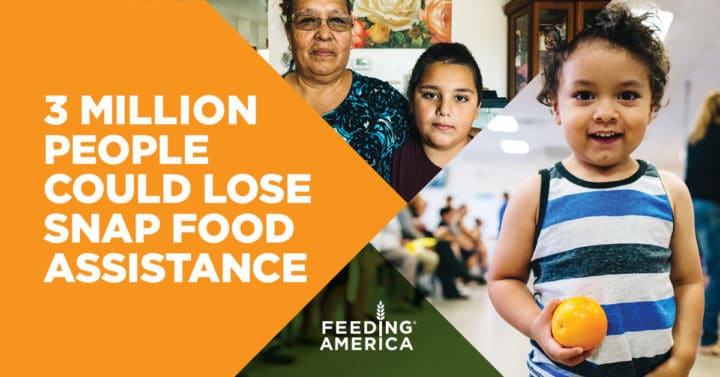The Supplemental Nutrition Assistance Program (SNAP) is our nation’s bedrock anti-hunger program: it protects kids, families, and elders against the harms of undernourishment, lifts people out of poverty, and affirms that every person deserves secure access to food. But the Trump Administration recently proposed a new rule that would sharply restrict SNAP, cutting 175,600 Washingtonians1 (more than 37% of whom are children) off of food assistance. Nationwide, 3.1 million individuals are estimated to lose basic support.2
The proposal would essentially eliminate a policy called “broad-based categorical eligibility” (BBCE), which has, for the last 20 years, allowed states to modestly raise SNAP income and asset limits so that households with incomes just above the federal cut-off can access support to put food on the table. Washington is among more than 40 states that currently leverage this policy to reach people whose incomes or savings are slightly above the stringent federal tests,3 but still struggle to make ends meet. This policy is especially critical in a state like Washington, where people in communities from Spokane to Seattle feel the impacts – and immense pressure – of the rising costs of living. Washingtonians are faced with the steep costs of basics like housing and child care, and an eligibility cut-off established for the nation overall (which accounts for substantially lower-cost regions) does not reflect the realities of our state economic context.
Broad-based categorical eligibility reduces food insecurity among working families, seniors, and people with disabilities who would be otherwise excluded from the assistance they need to afford adequate food. It does this by giving Washington and other participating states the flexibility to:
- Phase down SNAP benefits more gradually as a worker’s earnings rise, allowing households to stabilize their lives and budgets before moving off assistance entirely. BBCE ensures that a small increase in income does not trigger a sudden loss of SNAP benefits, whereas under the Trump proposal, earning a raise or securing a higher-paid job could harm a family’s financial bottom line.
- Allow households with low incomes to save for the future. By allowing states to raise the asset limit above the restrictive federal threshold, BBCE ensures that people who are struggling to make ends meet are not punished for trying to set aside a small amount for emergencies.The administration’s proposal would make it harder for people with low incomes to save for a car repair, unforeseen medical expense, or prepare for retirement.
- Make additional children in families with low incomes eligible for free school meals. When families are enrolled in SNAP, their school-age children are directly certified for free school meals. BBCE ensures that students in families struggling to afford the basics are automatically connected with basic nutrition – without it, children would lose this link to the fuel they need to succeed in school.
This proposal is the latest in a series of attempts by the Trump Administration to weaken basic assistance to people and families with low incomes. SNAP imposes rigorous requirements on both recipients and state administrators to ensure program integrity: under BBCE, all households are subject to a detailed application process that evaluates income, assets, and other family circumstances to ensure eligibility.4 And even though officials have claimed the rule is aimed at reducing abuse of SNAP, fraud represents a tiny percentage of the program – with most errors resulting from inadvertent mistakes by program staff, recipients, and in data entry, not from dishonesty on the part of applicants. By stoking anxiety about fraud in SNAP, the administration props up a pernicious false narrative that criminalizes people with low incomes. It obscures the truth that SNAP is a successful, well-run public program that provides effective support to individuals and families who have demonstrated substantial need.
Tell the Trump Administration that its latest proposal to restrict SNAP is misguided and will harm the health and well-being of people in Washington state and across the U.S. Raise your voice by submitting a public comment by September 23, 2019.

